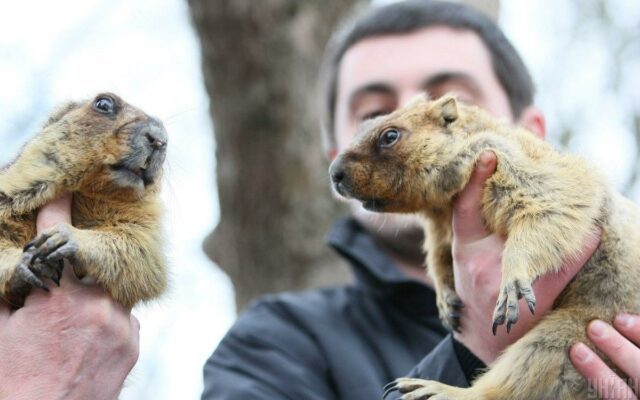Lviv Groundhogs Misha and Marusya: A Sad Farewell
Lviv, the charming city known for its cultural vibrancy, has faced a bittersweet moment. Misha and Marusya, the beloved groundhogs from the regional ecological and naturalistic center, have passed away, leaving the community without their usual springtime forecast. This heartbreaking news was shared by Igor Antakhovych, the director of the center, highlighting a poignant moment for both residents and visitors alike.
The Tradition We’re Missing
Traditionally, the local groundhogs would emerge from hibernation on the feast of the Presentation of Jesus at the Temple, celebrated on February 2nd according to the new church calendar. This year, however, the excitement turned into sorrow. “This year, there will be no awakening,” Antakhovych stated somberly. The anticipation of the groundhogs predicting the arrival of spring is a cherished tradition that many people look forward to, akin to the way people in Punxsutawney, Pennsylvania, celebrate Groundhog Day.
Imagine gathering around with family and friends, waiting to see whether these furry creatures would see their shadow, signaling six more weeks of winter or an early spring. Unfortunately, Lviv has lost this delightful ritual. As Antakhovych recounted, “Last October, they went into hibernation, but when we checked in November, we found the female had already passed. The male was still alive but succumbed by December.”
The Mystery of Their Demise
Antakhovych notes that no autopsies were performed due to the advanced state of decomposition. This leaves us grappling with the mystery of their untimely deaths. Here are two plausible theories that have emerged:
- Environmental Factors: Changes in climate and habitat could have played a part in their health deterioration. With extreme weather patterns becoming more frequent, it raises questions about how wildlife adapts—or fails to adapt—to rapid environmental changes.
- Health Issues: Like humans, animals can suffer from various health complications, especially in captivity. The stresses of a protected environment could have impacted their well-being more than anticipated.
The loss of Misha and Marusya serves as a sobering reminder of our responsibility towards wildlife. As an expert in ecological conservation, I believe that fostering biodiversity in our communities can create a healthier natural ecosystem that supports the survival of such species.
Reflecting on Our Connection to Nature
This event strikes a deeper chord about how closely we are intertwined with nature. According to the World Wildlife Fund, wildlife populations have declined by an average of 68% since 1970 due to human activity. This statistic reinforces the need for conservation and education about local wildlife.
Let us honor Misha and Marusya by committing to better understand and protect the natural world around us. Consider planting native species in your garden, participating in local clean-up efforts, or educating yourself and others about local wildlife. Each small act contributes to the preservation of our ecological heritage.
Through our collective efforts, we can ensure that the memories of beloved animals like Misha and Marusya inspire future generations, sparking a deep love and respect for all living creatures. Let their story remind us to cherish the vibrant tapestry of life that surrounds us, even in moments of loss.






